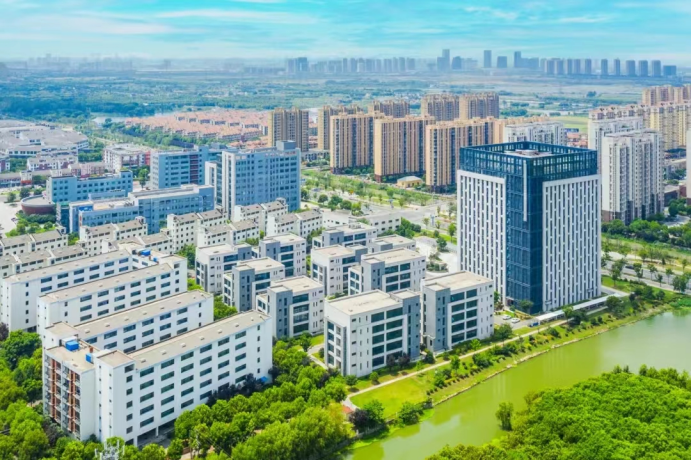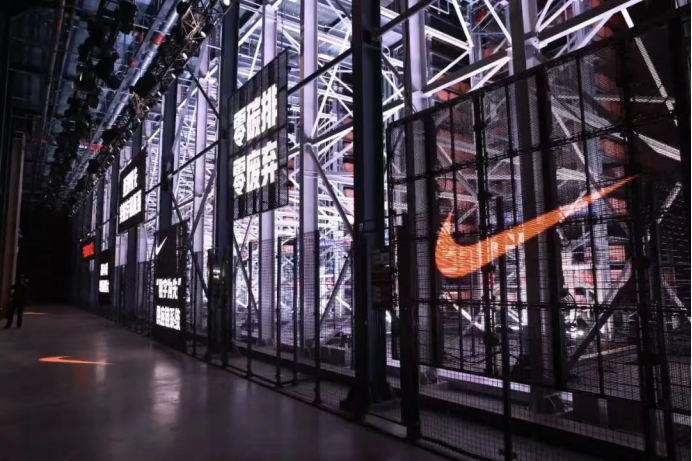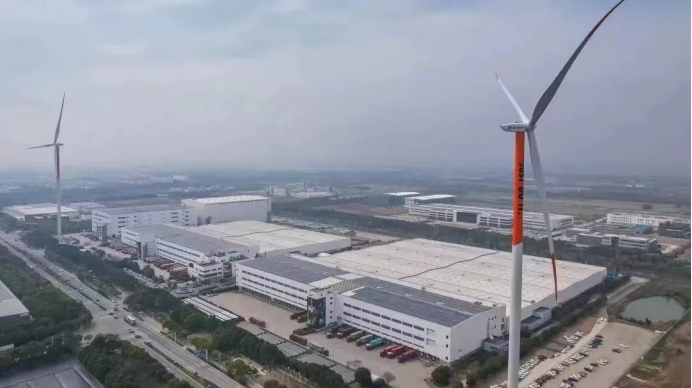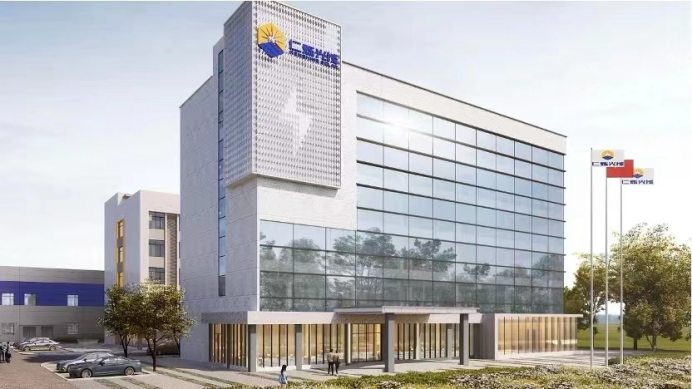How fragrant is the "double carbon" cake?
In Suzhou Yangcheng Lake Energy Conservation and Environmental Protection Industrial Park, many companies are busy rushing to make orders.
"We have settled in 45 professional environmental protection enterprises here, covering various environmental protection subdivisions such as water, soil, gas, solid waste, consulting, testing, carbon asset management, etc., and have initially built an industrial ecological chain. Ma Ji, president of Suzhou Environmental Protection Industry Association, said that in the context of "double carbon", the importance of the environmental protection industry has become increasingly prominent, and it is time to build such a professional national science and technology business incubation service platform for environmental protection. Official account: 3060 carbon peak and carbon neutrality.

Industry insiders pointed out that the "Interim Regulations on the Administration of Carbon Emission Trading" implemented on May 1 will further expand the "double carbon" cake in the Yangtze River Delta region, and the pace of market expansion will be further accelerated.
The blue ocean market for carbon asset management has emerged
Carbon peaking and carbon neutrality have brought great opportunities to the carbon asset management industry. Some institutions predict that the scale of investment in China's low-carbon economy in the future will exceed 100 billion yuan, which is a huge blue ocean market. Official account: 3060 carbon peak and carbon neutrality.
In recent years, an aluminum products manufacturing enterprise in Suzhou has been actively promoting green and low-carbon transformation to enhance the green competitiveness of products. However, enterprises are currently facing a variety of carbon management needs, including government departments, industry associations, product exports, supply chains and other aspects, and it is urgent to build a carbon management system that meets their actual production characteristics to effectively achieve energy conservation and carbon reduction.
"After receiving business inquiries from enterprises, we tailored a carbon management pathway plan for enterprises. Yan Linfang, a researcher at State Grid (Suzhou) Urban Energy Research Institute Co., Ltd., introduced that this plan systematically puts forward a number of carbon management suggestions, supporting enterprises to promote energy conservation and carbon reduction from four aspects: clean energy supply, energy efficient consumption, smart energy management and low-carbon market trading.
In addition to providing "carbon reduction" services for enterprises, the State Grid (Suzhou) Urban Energy Research Institute also provides "carbon calculation" services for enterprises. A photovoltaic module frame manufacturer in Yancheng recently received a notice from a European customer, requiring the company to provide feedback on the calculation and submission of data related to product carbon tariffs in the current month. After receiving the company's request for help, the State Grid (Suzhou) Urban Energy Research Institute quickly organized a team to help the company complete the calculation and submission of relevant carbon data within the specified time, which met the requirements of the company's European customers and was also recognized by the company.
For carbon asset management companies that were established earlier, they have now entered the fast lane of revenue and profit growth. For example, the financial report of State Grid Yingda shows that its State Grid Yingda Carbon Assets Company will achieve an operating income of 25.78 million yuan in 2022, a year-on-year increase of 18 times, and a net profit of 2.18 million yuan, achieving operating profit for the first time. Official account: 3060 carbon peak and carbon neutrality.
Zero carbon certification and carbon footprint certification are "on fire".
The Nike China Logistics Center in Taicang has achieved 100% renewable energy power and built a zero-carbon smart logistics park integrating wind and solar, the zero-carbon, digital and happiness integrated energy management and control platform in Jiangxiang Village, Zhitang Town, Changshu has been officially launched, and the first zero-carbon smart village in Suzhou has been built, and the province's first "smart carbon footprint" management platform has been put into operation in Suzhou to calculate the "carbon footprint" of enterprise products. Since last year, Suzhou's "zero carbon" and "carbon footprint" certification has been reported frequently. Official account: 3060 carbon peak and carbon neutrality.
Suzhou's export-oriented economy has obvious characteristics, which are greatly affected by the requirements of foreign industrial chains and carbon tariffs, and industrial enterprises have a large demand for "zero carbon" and "carbon footprint" certification. Suzhou Daobo Environmental Protection Technology Service Co., Ltd. (hereinafter referred to as Daobo Environmental Protection) is a low-carbon technical support unit of Suzhou Development and Reform Commission, Industry and Information Technology Bureau, and Ecological Environment Bureau for a long time, and is responsible for the submission and technical review of greenhouse gas-related materials for most high-energy-consuming enterprises in Suzhou.
"We received an overseas order, but the other party needs us to provide carbon footprint certification, what should we do?" At the beginning of this year, the product manager of a bearing manufacturing enterprise in Suzhou High-tech Zone asked Daobo for help. Daobo Environmental sent a professional team to help the company carry out the carbon footprint certification of bearing products, and the company's products were successfully integrated into Bosch Automotive and its global supply chain. At the request of the company's overseas headquarters, a German-funded air-conditioning equipment company in Suzhou Industrial Park sought technical support from Daobo Environmental Protection. Daobo Environmental helps companies carry out carbon verification and design carbon neutrality pathways, in response to the goal of achieving carbon neutrality in their global factories.

The Nike China Logistics Center in Taicang is the largest logistics center of Nike Group in Asia, and it is also the largest fully automated unmanned three-dimensional warehouse in Asia. The carbon emissions of the center account for 43% of all Nike Group's self-owned and self-operated facilities in China, and there is huge room for energy conservation and emission reduction. The Nike Group has set a goal of using 100% renewable electricity in its owned and operated facilities by 2025. Since 2010, Nike China Logistics Center has begun to build a distributed energy network, vigorously implementing the integrated comprehensive utilization of wind, solar, heat and biomass. In 2021, the Nike China Logistics Center began to prepare for a distributed wind power generation project, and in March 2023, a zero-carbon smart logistics park integrating wind and solar power was built. According to the estimation of the Suzhou power supply department, the cooperation between photovoltaic and wind power can reach an average daily power generation of 47,000 kWh, which is equivalent to a daily reduction of 29.92 tons of carbon emissions. In addition to the previous solar, heat and biomass projects, Nike China Logistics Center has achieved 100% electricity supply from renewable energy. Official account: 3060 carbon peak and carbon neutrality. Official account: 3060 carbon peak and carbon neutrality.
"Zero-carbon certification and carbon footprint certification are based on the certification and evaluation system of 'zero-carbon management + carbon reduction technology + operational performance', which will help actively respond to climate change, promote green, low-carbon and sustainable development, and serve the full realization of the national 'double carbon' goal. Wang Shi, general manager of Daobo Environmental Protection and an expert in the evaluation of near-zero carbon factories in Suzhou, believes that carrying out zero carbon certification and carbon footprint certification can prompt enterprises to continuously develop new technologies and explore new production methods and management models. As consumers pay more attention to environmental protection and sustainable development, companies that carry out zero-carbon certification and carbon footprint certification will become more competitive in the market. At the same time, in the process of carrying out green certification, enterprises continue to optimize the energy structure and production methods, improve the efficiency of energy conservation and emission reduction, and achieve a year-by-year reduction in operating costs through "early investment and early income". In addition, with the improvement and mature application of the carbon inclusive mechanism and the popularization of the concept of green consumption, low-carbon products are more likely to be favored by the market, and the certification results will be adopted in international trade and supply chain procurement.

"The park solves the 'big problem' of green power supply, and the company solves the 'small details' of carbon reduction. After the completion of the zero-carbon logistics park, enterprises can enjoy the affordable price of green electricity on the one hand, and produce 'green label' products that are more competitive for export on the other. "The person in charge of Nike's China logistics center is full of confidence in the future. Official account: 3060 carbon peak and carbon neutrality.
Capital focuses on the energy conservation and environmental protection market
In 2024, the national carbon market will enter the third compliance period, and the pace of market expansion will accelerate. With the in-depth promotion of the national "dual carbon strategy", more and more capital has poured into the field of energy conservation and environmental protection.

Source: Suzhou Science and Technology City
In January this year, Renshuo Solar (Suzhou) Co., Ltd. (hereinafter referred to as Renshuo Solar) announced the completion of hundreds of millions of yuan in Series A financing. According to a relevant person from Renshuo Solar, this round of financing funds will be mainly used for the upgrade and operation of the 150MW perovskite mining line. It is reported that in order to start the construction of GW-level production lines, Renshuo Solar will open a new round of financing in 2024. Official account: 3060 carbon peak and carbon neutrality.
Suzhou Zhanqing Environmental Protection Technology Co., Ltd. (hereinafter referred to as Zhanqing Environmental Protection), which is committed to industrial pollution control and wastewater resource utilization, also received good news this year: it has completed tens of millions of yuan in Pre-A round of financing. Relying on a number of independent research and development technologies, Zhanqing Environmental Protection has launched the "Photovoltaic Cell Fluoride Wastewater Efficient Treatment and Resource Utilization Solution" and "Lithium Battery Recycling Wastewater High Salt Biochemical Solution" to photovoltaic cell manufacturers and lithium battery recycling enterprises. As an innovation-driven company, Zhanqing Environmental Protection has passed the test of hundreds of customer cases in the field of efficient treatment of industrial wastewater, and is the first to realize industrial application.
The energy conservation and environmental protection industry chain is huge, and there are many industrial links, including three sub-industries: energy conservation industry, environmental protection industry and resource recycling industry, which is one of the strategic emerging industries. "We think this cake is still very 'fragrant'. Ma Ji said. Official account: 3060 carbon peak and carbon neutrality.







